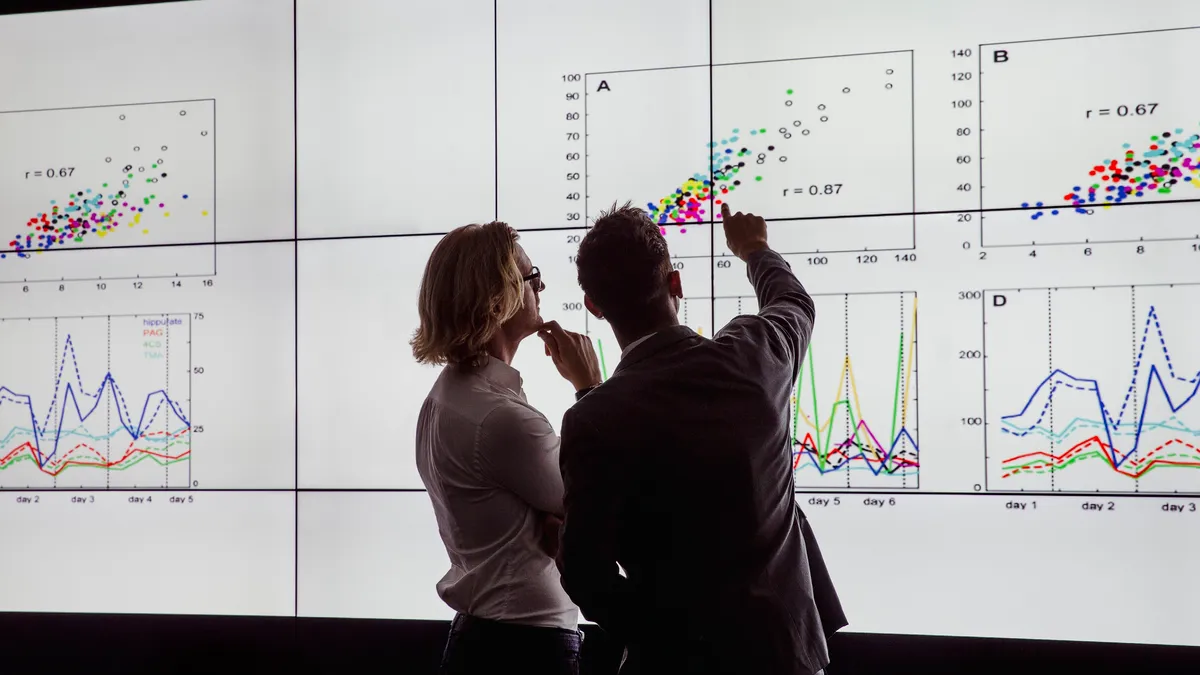Dive Brief:
- Organizational leaders need to be aware of misinformation and the potential risk that repeating misinformation may pose for decision-making, researchers at Purdue University, Ramon Llull University in Spain and the University of Cologne in Germany wrote in an MIT Sloan Management Review article published this month.
- The researchers’ work centers on the “illusory truth effect,” a phenomenon in which the repetition of false information can create an illusion of truth. The effect is especially prevalent in the digital age, authors wrote, even if many executives believe they are immune to false information, inaccurate data or other misinformation.
- Researchers recommended a list of four strategies for leaders to counteract the illusory truth effect. The first is to understand what the effect is and accept vulnerability to misinformation. From there, executives can foster environments in which opposing and differing perspectives can be generated and openly discussed; develop an “accuracy mindset” and promote a culture that defaults to considering the truthfulness of new information; and repeating true and relevant information.
Dive Insight:
Workplaces are a reflection of societal realities, and the prevalence of misinformation in broader culture can serve as an example of this dynamic. HR is no stranger to dealing with misinformation in the past two years, however, especially where COVID-19 is concerned. From parental leave to workplace testing to vaccination policies, professionals have had plenty of opportunities to encounter false or misleading narratives.
“One of the most important challenges leaders face in the digital age is preventing inaccurate data, false information and pseudo-fact,” Katharina Schmid, an associate professor at Esade Business School at the Ramon Llull University, said in a statement shared with HR Dive. “Leaders bear a double responsibility in fighting the illusory truth effect; they must combat it for their teams, employees, and companies but also for their own personal reputations.”
Beyond COVID-19, HR may encounter other areas of potential misinformation and bias that hit close to home. Technology is one of the most prominent. For example, as organizations prioritize data collection and analysis, bias has emerged as a growing concern, according to a 2021 survey of businesses by law firm Hogan Lovells. That may include applications such as hiring, an area of interest to federal regulators in recent months.
But the authors of the MIT Sloan Management Review article noted that broader trends can inspire misinformation as well. In a February opinion piece for HR Dive, George Mason University Dean Maury Peiperl noted that the Great Resignation could inspire its share of myths, too, such as whether only certain industries or job types would lose workers.













